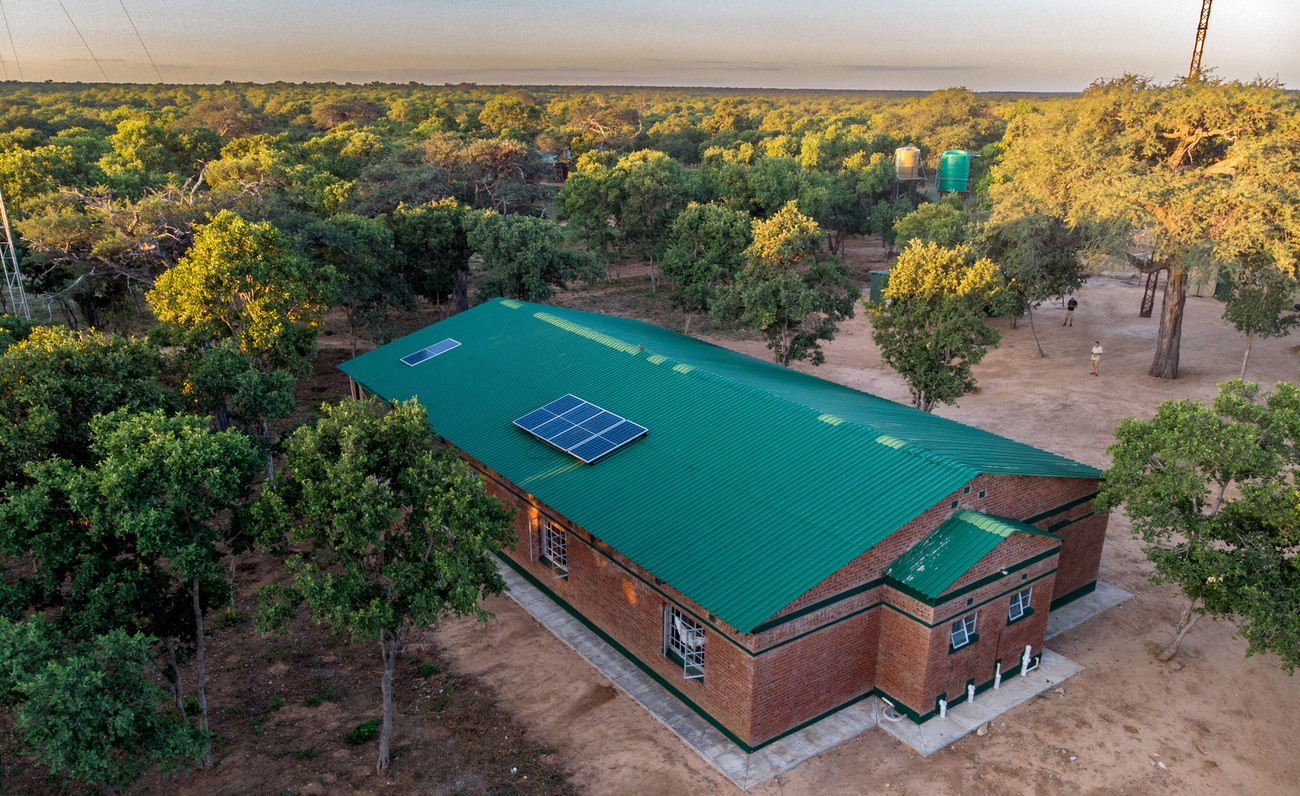Blog
Vultures: Nature’s cleanup crew and wildlife detectives
Read moreMakona ranger base station to enhance ranger welfare and wildlife protection

(Hwange, Zimbabwe - 15 April 2023) - The Zimbabwe government today officially opened Hwange National Park’s first modern-era ranger station—establishing a permanent base to prevent wildlife crime and safeguard communities in the remote southern region of the iconic sanctuary.
The base—a milestone project of the US$5-million five-year conservation agreement between IFAW and ZimParks—puts rangers at the centre of what was once a wildlife poaching hotspot.
The Makona base was opened to much fanfare by Zimbabwe’s First Lady, Dr Auxillia Mnangagwa, Zimbabwe’s Tourism and Wildlife Ambassador, who hailed the IFAW-ZimParks partnership for prioritising ranger welfare.
“Well-supported, adequately resourced, trained, and motivated rangers are key to ensuring we win the fight against poaching and stop the destruction of ecosystems,” said Dr Auxillia Mnangagwa.
Makona is now a fully-fledged permanent ranger base covering over 5000 km2 southern section of Hwange National Park, which shares a long and open boundary with both community lands and neighbouring Botswana.
Including an office complex, operations centre, recreational facility, and 12 housing units accommodating more than 24 rangers and their families.
The Makona base is approximately 15 kilometres from the Tsholotshlo community, enabling rangers to deploy to respond to incidents of human-wildlife conflict swiftly.
“We are thrilled to celebrate this achievement together with ZimParks. It is a testament to a mutual, long-term commitment to protecting and preserving biodiversity, grounded in a partnership to deliver transformational change for people, wildlife, and the natural environment,” said Azzedine Downes, IFAW President and CEO.
“The IFAW-ZimParks partnership has transformed a large part of Hwange National Park, resulting in zero incidents of elephant poaching in the Makona area and the wider park over the last three years,” said Dr Fulton Mangwanya, Director-General of Zimbabwe Parks and Wildlife Management Authority (ZimParks).
In 2013, cyanide poisoning killed 300 elephants and other wildlife in the southern part of Hwange National Park near Makona. The new ranger base station is expected to transform and sustain the area as a haven for wildlife.
The IFAW-ZimParks partnership has invested more than US$3.5 million in the Hwange-Matetsi-Zambezi landscape. These funds have gone towards combatting wildlife crime, ranger welfare, park management (improving infrastructure; game water management), tourism development, wildlife rescue, and mitigating human-wildlife conflict.
Ends
Press Contact:
International Fund for Animal Welfare (IFAW)
Christina Pretorius: +27 (0)82 330 2558; cpretorius@ifaw.org
Luckmore Safuli: +263772527736; lsafuli@ifaw.org
Zimbabwe Parks and Wildlife Management Authority (ZimParks)
Tinashe Farawo: +263772433901; tfarawo@zimparks.org.zw
About IFAW (International Fund for Animal Welfare)
IFAW is global non-profit helping animals, and people thrive together. We are experts and everyday people working across seas, oceans, and in more than 40 countries around the world. We rescue, rehabilitate, and release animals, and we restore and protect their natural habitats. The problems we’re up against are urgent and complicated. To solve them, we match fresh thinking with bold action. We partner with local communities, governments, non-governmental organizations, and businesses. Together, we pioneer new and innovative ways to help all species flourish. See how at ifaw.org.
About Zimbabwe Parks and Wildlife Management Authority (ZimParks)
Tasked with the protection, management, and administration of the wildlife of Zimbabwe, the Parks & Wildlife Management Authority has a proud history of sound management in conservation since 1975. Zimbabwe’s rich biodiversity provides a haven for many species of flora and fauna to survive and thrive. Given the large and expansive resource under our stewardship, this responsibility cannot be achieved in isolation. Our network of protected areas, conservancies and trans-frontier parks ensures that we share the load. Trans-frontier Conservation Areas promote collaboration with Zimbabwe’s neighbours to curb international wildlife crime, promote tourism and preserve the shared heritage, which itself knows no borders. www.zimparks.org.zw
Our work can’t get done without you. Please give what you can to help animals thrive.
Unfortunately, the browser you use is outdated and does not allow you to display the site correctly. Please install any of the modern browsers, for example:
Google Chrome Firefox Safari